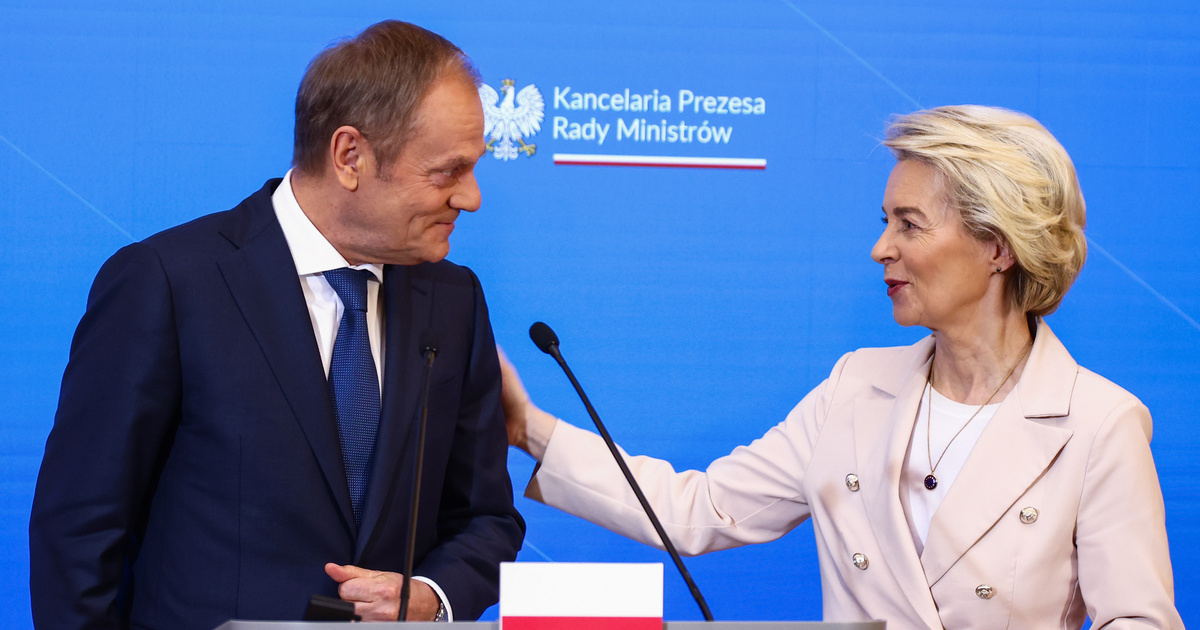The European Commission has made two important decisions that pave the way for Poland to receive up to €137 billion in EU funding. These matters relate to the rule of law reforms adopted by Poland, as well as new and immediate steps taken to achieve milestones aimed at strengthening the independence of the judiciary, MTI reported.
The European Commission suspended its funding to Poland in 2022, on the grounds that judicial changes introduced by the government at the time threatened the independence of the judiciary.
Today we open a new chapter on rule of law issues in Poland as we recognize the important progress made by the Polish government
– Vera Jourova, EU Commissioner responsible for transparency, wrote on X.
Poland receives 76 billion euros in cohesion funds under the 2021-2027 budget, and the government has access to a total of 25.3 billion euros in non-refundable support and 34.5 billion euros in loans from the EU recovery plan. The latter requires the approval of the Council, which brings together member states.
Poland also joins the European Prosecutor's Office
As the 23rd member state of the European Union, the Polish government will soon join the European Public Prosecutor's Office (EPPO) created to protect EU funds, writes Free Europe.
The decision may take effect as early as March. According to the plans, the European Public Prosecutor's Office could expand its activities to Poland in the summer, so the Tusk government will have to appoint two prosecutors to the European Public Prosecutor's Office.
After Poland's accession, there will be four EU member states that have not yet joined the European Public Prosecutor's Office.
According to some EU officials, Sweden will soon announce its application to join, and advanced negotiations are underway with Ireland. They added that Denmark has the option to withdraw provided for in the EU Treaty, so Hungary may soon be the last member state to withdraw.
As Index reported, Vera Jourova, the European Commission Vice President responsible for the rule of law, repeatedly proposed to her Hungarian negotiators to join the European Public Prosecutor's Office, but according to her, “this was always rejected.”
The Vice-President believes that the exercise of financial pressure has produced certain results, and also points out that rule of law policing measures are still ongoing, because there are still no comprehensive guarantees to protect the financial interests of the European Union. Whether that is public procurement or anti-fraud and corruption in terms of safeguarding.
As we wrote, it was revealed in December 2023 that €10 billion of the €22 billion owed to Hungary would be released from the 2021-2027 Cohesion Fund. Hungary had previously refused to join the European Prosecutor's Office under the pretext of protecting its sovereignty, although Prosecutor Peter Boldt concluded a working agreement with the organization.
Donald Tusk can cite Hungary as a negative example
According to the European Commission, the new Polish government has made efforts to restore the rule of law and has presented an action plan for the judicial system to meet EU standards.
Free Europe knows that Donald Tusk quarreled a few weeks ago with the President of the European Commission, Ursula von der Leyen, over the situation in Hungary. According to the Polish Prime Minister, the situation in Poland is the exact opposite of the situation in Hungary: in Hungary, unacceptable laws are settled and amended on paper, but are not necessarily followed in practice, while the Polish government is also committed to – restoring the rule of law over Practical level.
(Cover photo: Donadl Tusk and Ursula von der Leyen on February 23, 2024. Photo: Beata Zorzel/NurPhoto/Getty Images Hungary)

Comprehensive analyses, world-changing questions, and visions for the future in one volume.













































